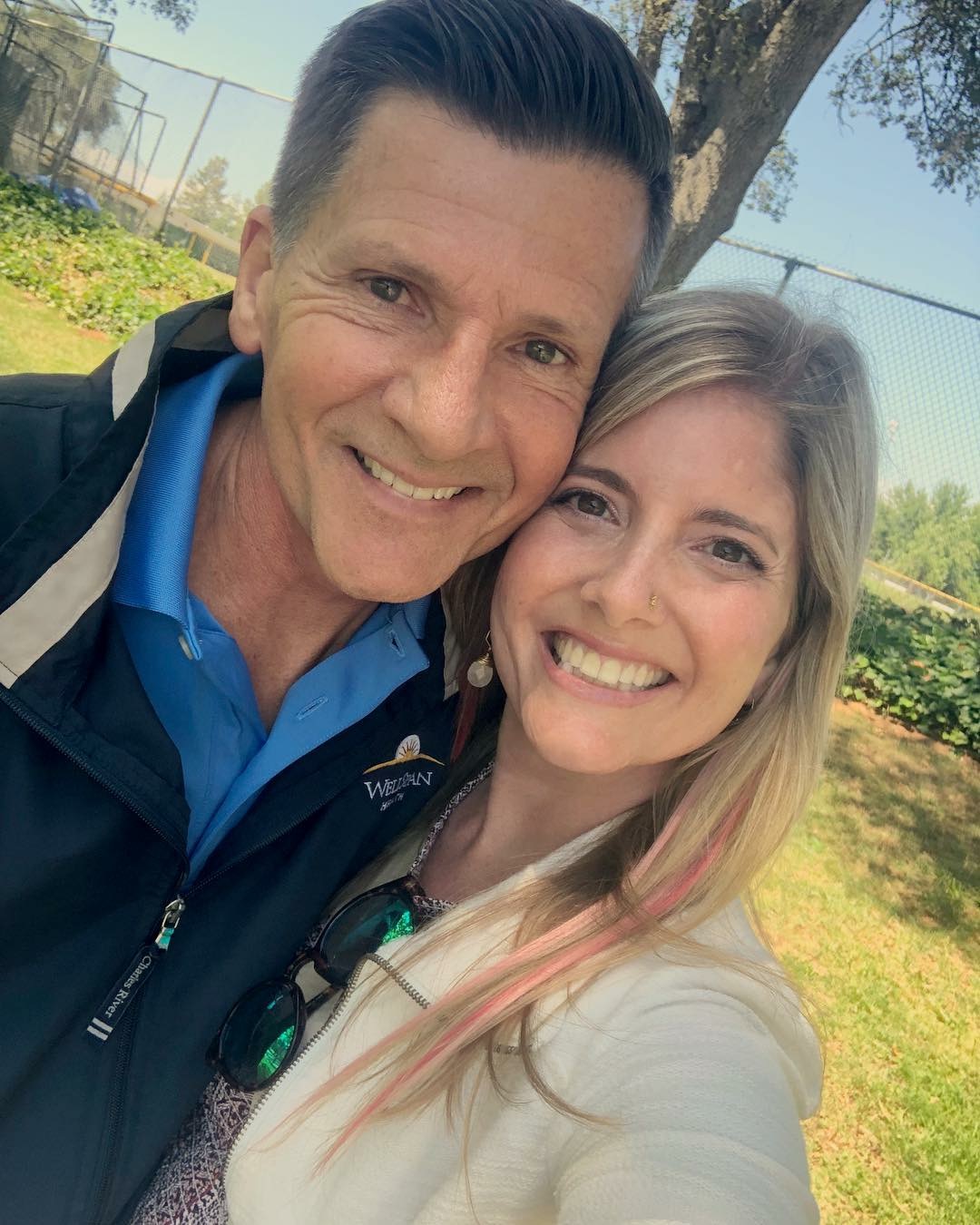
Valen and her dad, Bill, on Father’s Day 2018
My parents live in Pennsylvania and my dad is currently visiting me in California. He is at our home helping us out for a week. He took me to San Francisco for a liver procedure that I needed as part of the process for getting approved to be listed for a liver transplant. My dad has been an incredible help around the house and is taking me to all of my doctor and infusion appointments. I continue to be awed by his devotion as a father, his unconditional love, and all the sacrifices he has made and continues to make for me. He is an extraordinary caregiver and has held my hand during my darkest days with PKD. Words could never justify how thankful I am to be Bill Cover’s daughter and how grateful I am to have him as a best friend. In celebration of Father’s Day this year, we sat in my living room and I did our first Q&A together. It is a conversation I’ll always treasure and I hope you are as inspired by my dad as I am:
Valen: What do you remember from the first time you learned about PKD?
Bill: I remember seeing your grandmother’s arm wrapped in a bandage due to her fistula from being on dialysis. Your mom told me a little about PKD when we met. She got pregnant with your brother and we married pretty quickly. At the time I was in my 20s, feeling “10-foot tall and bulletproof.” I was naïve and fortunate to not have been exposed to any major health issues. I never thought about PKD or looked that far ahead. I didn’t think twice about marrying your mom. My thought was that your mom dealing with PKD was many years away and that there would be a lot of improvements in the medical field and better options for her than what her mom was enduring with dialysis.
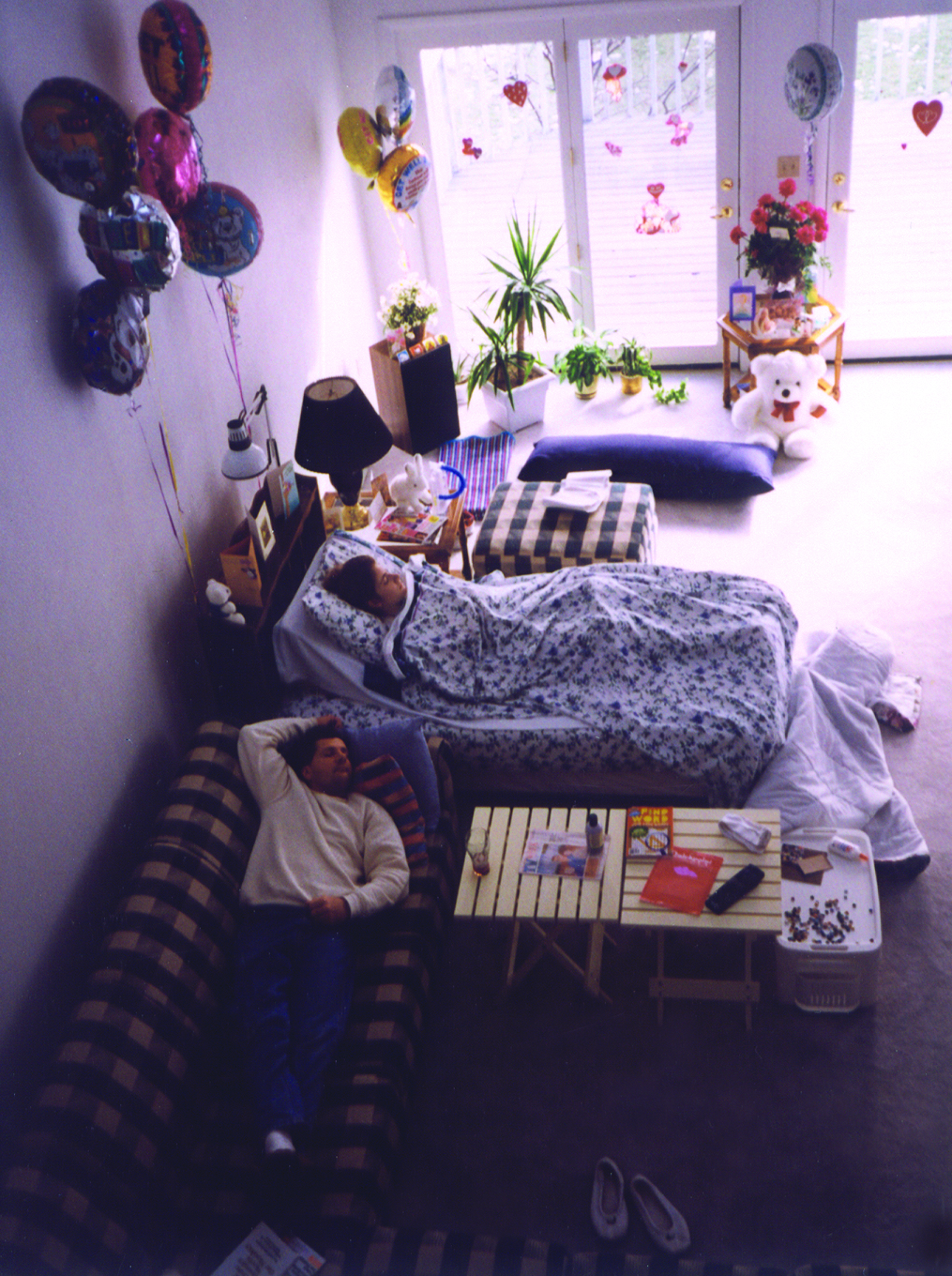
Bill resting on the couch next to Valen’s bed following one of her surgeries.
Valen: How would you describe our family’s path with PKD and how it has affected your life?
Bill: PKD has added a tremendous amount of stress in my life. While PKD has not improved my quality of life, it has improved the quality of me as a person. PKD has taught me an awful lot about caring for and making sacrifices for other people. It has been a matter of learning to make decisions about what the most important thing to do at the time is, and, to this day, still being able to do that.
Valen: You married Mom, who has PKD, and raised a child who went through every aspect of PKD. What has it been like to be a caregiver?
Bill: Very difficult. The caregiver must be willing to make sacrifices and try to provide encouragement, which brings out your inner qualities as a person. Being a true caregiver is knowing when the person needs assistance and helping out even when you are not asked. You must be a good listener and pick up on things and look for signs, especially if the person you are caring for is independent.
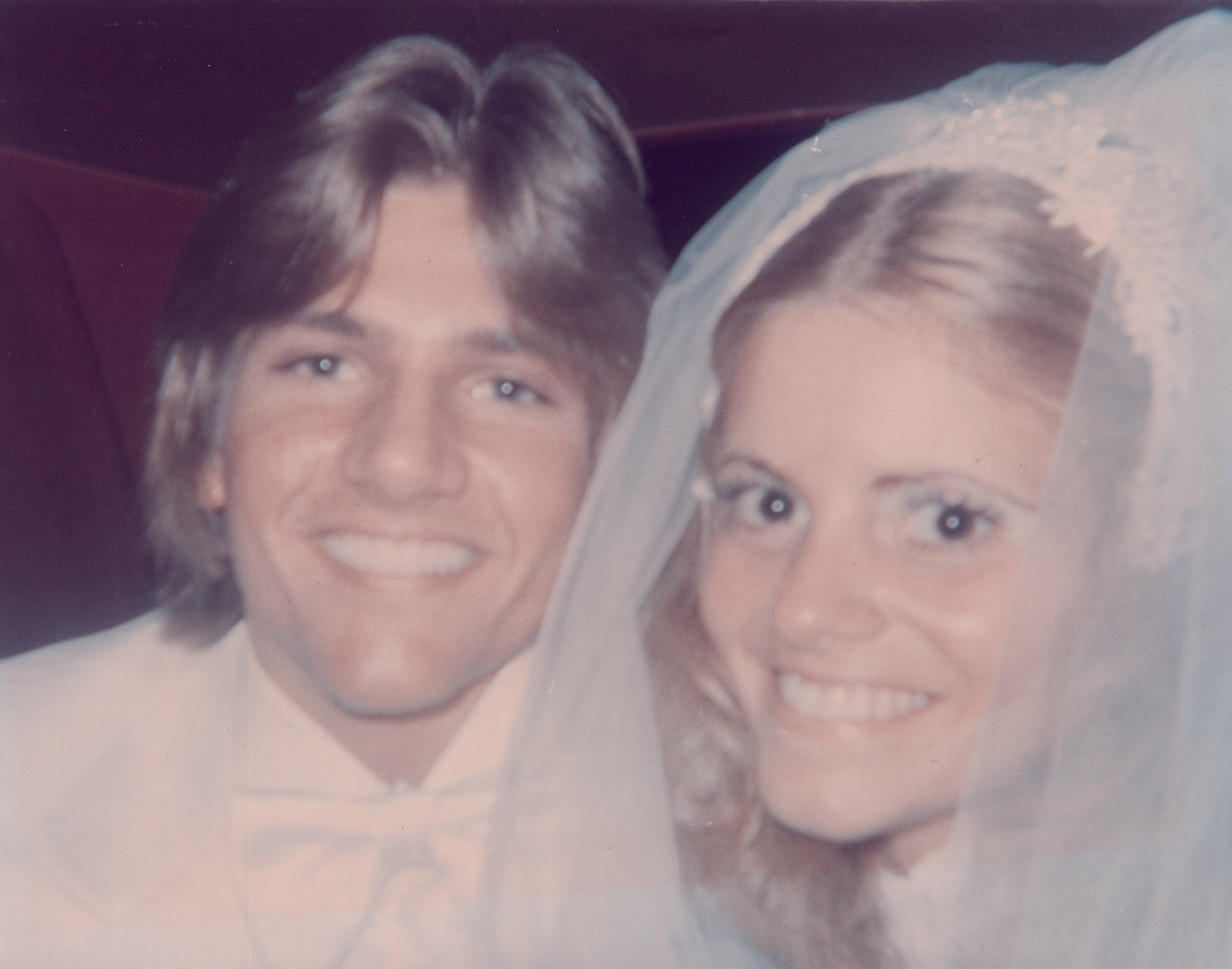
Valen’s parents, Bill and Pam, on their wedding day.
When you have illness in the family it affects your quality of life, but I’m glad that I haven’t become a miserable person over it. I’m fortunate to not have lost anyone due to PKD in my immediate family thanks to doctors, technology, and your strength, Valen, as a person and your desire to keep going. You could have shut down at any point and given up, but I don’t believe you ever had a reason to give up. Support is a necessity when suffering, and it can change the direction and the outcome for somebody battling illness. If there is nobody there, then there is no purpose. If you can’t find any relief or support while suffering, then you yourself will suffer. Your mom and I made sure that never happened with you. We may have weakened from time to time, but one of us kept on plugging.
I know how some small things trip me up and how easy it is to get down about that. I’ve learned you really don’t know what you’re capable of until you are challenged and put through it. If you would have told me 30 years ago what I’m going to see and experience what my child has gone through and how it is going to affect our family, I would have thought I was incapable of going through that. It’s incredible, though, the strength of people when they are put into those positions and you get the inner power to do it.
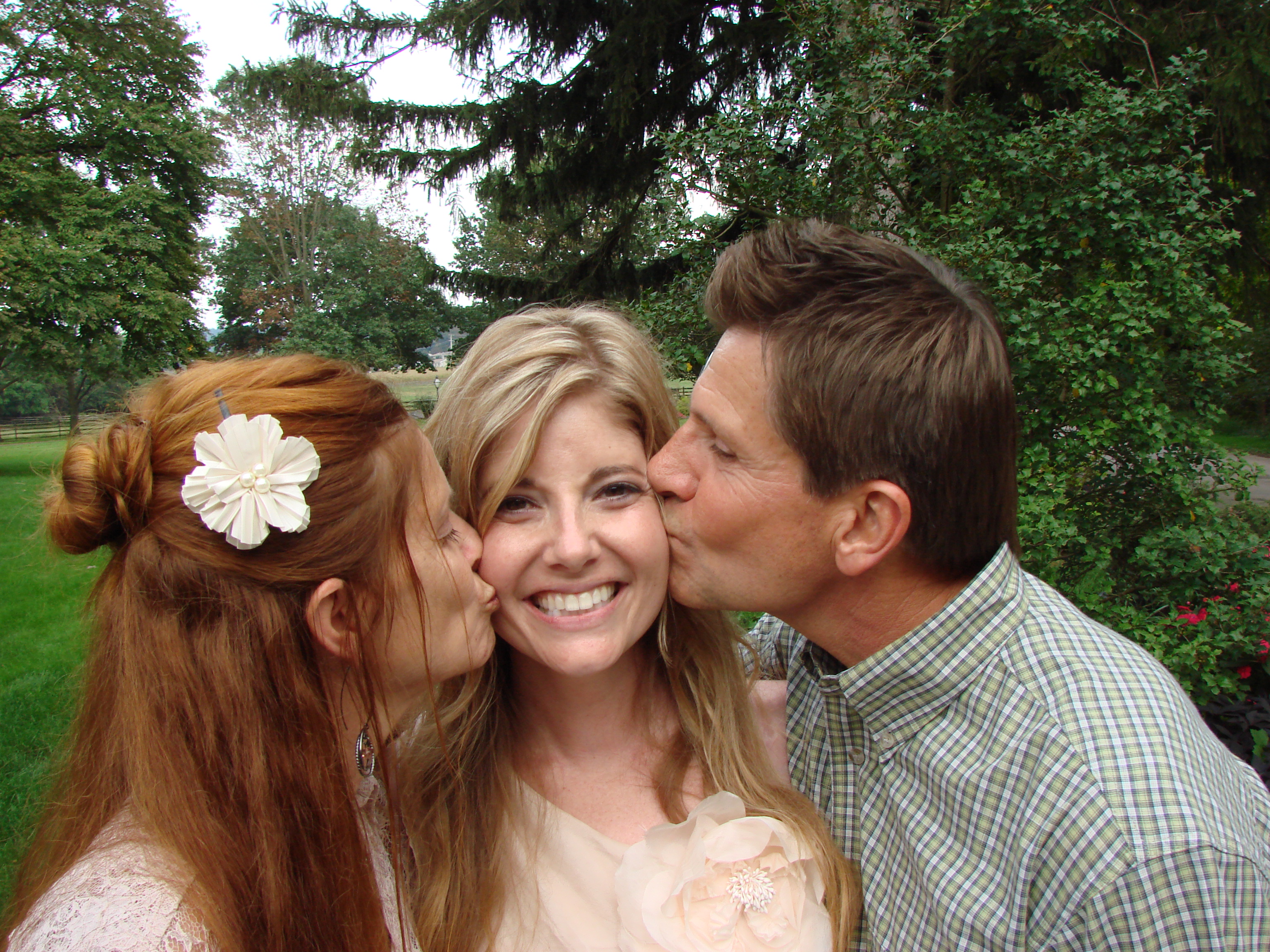
Valen and her parents.
Valen: How do you feel about the PKD advocacy work that I’ve done and how I’m sharing our family story?
Dad: I think it is totally wonderful that you do that. In the earlier years, it almost seemed like we were the only people in the world affected by PKD. Nobody knew what it was; you had to explain it in such detail and they still didn’t know. Early on, technology and media were not the same as it is now, which has brought awareness one hundred fold. Then there are people like yourself that want to share your story in an effort to inform people because we ourselves were not well informed. Back then we couldn’t get on a computer or phone to research or connect with others. Once things started happening with you, we didn’t know who to go to or what to believe. Not everybody was aware of PKD and we had to seek out specialists in the field. We were so confused and lost so many times with not knowing what was next. It was a lot of nightmarish situations.
Now watching you, my daughter, whom I’ve seen endure everything you’ve gone through and all the suffering, and it amazes me that you still have some kind of an inner desire to be positive and help other people. I don’t think most people that have suffered as much as you have would want to turn around and do what you do for everyone. I’m inspired by that. I’m overwhelmed by it.
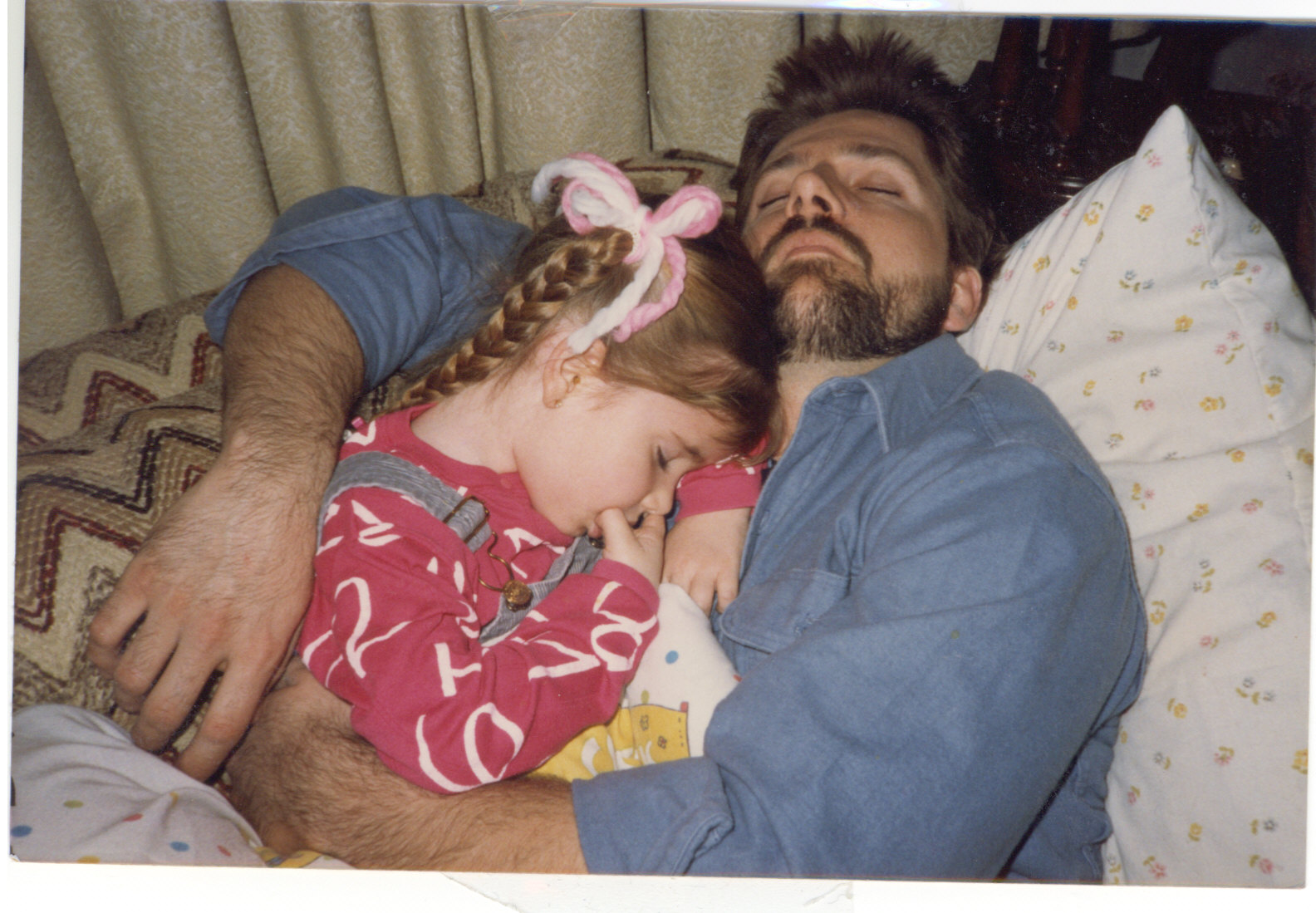
Bill with Valen as a child.
Valen: You and I have been through some really hard days/weeks/months and years because of PKD. What would you say to other parents raising a child with PKD?
Bill: Support them all along the way and educate yourselves about PKD. Knowing what you have and what you are dealing with could possibly help you live your life without being in constant fear. I know what it was like for your mom living in fear and I believe we were slightly uneducated on PKD. Nowadays with technology, there is no reason that you should live in the dark. Be active and make sure your child understands PKD. Once your child starts asking questions and wondering about it, help them understand what they have and how to deal with it. You can’t change it, but it is important to live your best life with what you’ve been dealt.
Valen: What has PKD taught you?
Bill: PKD has taught me to better appreciate health and a valuable lesson of trying not to get tripped up by the small insignificant things because there are larger things to tackle in life.
Valen: What message do you have for other caregivers?
Dad: Being a caregiver will sometimes take everything you have to get yourself and the person you’re caring for through the day, but I truly believe it is one of the most rewarding things you can do as a person – to help someone that is not as fortunate as you are at that time.
Are you a caregiver? If so, what advice do you have for your fellow caregivers?









An EXCELLENT interview…..love ALL your answers Bill 💙 So happy you are ALWAYS there for Valen and once again during during this recent unexpected journey . I know very well, how much love and support get you through every single day when dealing with PKD . We love Valen too, so are very happy she has all the love she needs to give her…..her never ending strength and fight 💚
So very sweet, Jan! This means a lot coming from you, an amazing kindred spirit. Thank you for being a special part of my circle of support. Big love and hugs! 💙💚 xoxo
YES!! Love this Valen-so meaningful and true!!!
Thank you, Maureen! So happy you love this post. I very much appreciate your sentiments and support! XO